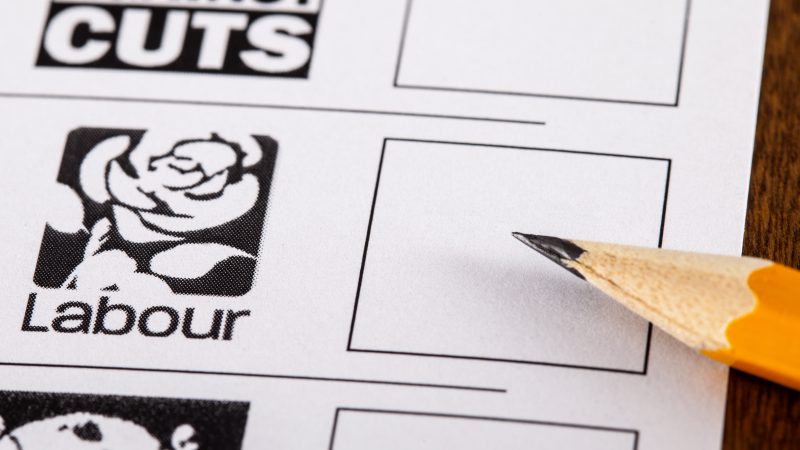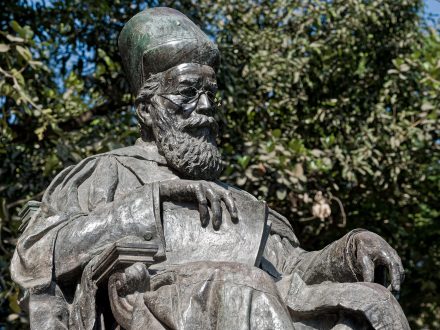
The great figures of the Indian independence movement are often remembered and celebrated, be they Nehru or Gandhi. However, there is one significant name that is often overlooked.
In a corner of Anerley in Bromley, south-east London, a blue plaque marks the former home of Dadabhai Naoroji, dubbed the ‘Grand Old Man of India’, and ‘Father of Indian Nationalism’. Born 4 September 1825 in Mumbai, Naoroji was nothing short of a trailblazer.
A founding figure and three-time president of the Indian National Congress (Labour’s sister party in India), Naoroji made history when elected as Liberal MP for Finsbury Central in 1892, becoming Britain’s first Indian MP. His maiden speech voiced how Indians were treated either as subjects of the Empire or slaves to it, and that transferring British-operated institutions in the subcontinent to Indian control, would faciitate self-governance.
As his parliamentary career concluded, his politics shifted leftwards. He attended the Sixth Congress of the Second International in Amsterdam in 1904, and became an enthusiastic supporter of and donor to Keir Hardie.
While residing in Bromley, Naoroji would vigorously push his support for full Indian independence and ‘Swaraj’ (self-rule). In 1901, he published his seminal text ‘Poverty and Un-British Rule in India’, promoting his Drain Theory of India’s wealth and resources where India’s net national profit was not being recirculated into the country (a value he approximated at £300 million). This further emboldened the independence movement, with Gandhi once writing to him: “The Indians look up to you as a father.”
Labour has been wrongly dubbed ‘anti-India’
Dadabhai Naoroji’s role in British politics is a reminder of not only the contributions of the British-Indian community, but that more needs to be done to address diversity and reprsentation even within our own party.
Labour has come under fire for being perceived as an ‘Anti-India’, a consequence of poor decision-making under the previous leadership. However, to suggest Labour is ‘Anti-India’ is untrue and those purporting this blissfully ignore that it was under a Labour Government that India gained its independence and where the Labour movement were staunch advocates of Indian independence, the Conservatives wished to preserve the status-quo.
Furthermore, those emigrating to the UK during the 60s and 70s like my late parents, came against a backdrop of a socialist India with a commitment to hardwork, and providing their families the best a welfare-state offered be it in healthcare and education. Their values resonated with Labour values and still do amongst many today.

Harrow, Leicester, Uxbridge: Don’t take voters for granted
However, British-Indian support cannot be taken for granted, as we have seen detrimentally in places like Harrow, Leicester, and recently in Uxbridge.
Moreover, it would be facetious to deride the Conservatives on their track record with racism; it is well-known and documented, but time moves on, and everyone must be afforded the opportunity to adapt.
Representation should always be welcomed. When my late parents first arrived in this country in the 1970s with two young daughters and barely any money, they could never have imagined that a man of Indian and Hindu heritage would become Prime Minister.
Whilst it is commendable that the Tories have put diversity and representation at the forefront, it cannot be ignored that the policies that this government has pursued undermine the progressive values that many (like my late parents) hold dear.
Diversity and reprersentation matters and Labour must ensure it doesn’t fall behind.
The G20 is a reminder deeper relations are key
For too long we have assumed that Indian voters would gravitate towards us simply because we are the champions of immigrant rights, but we have seen this to not always be the case. But under Sir Keir Starmer, the party has turned a corner and at the most recent UK-India Summit, he spoke openly about the mistakes Labour had made previously in how it approached Indian relations and that a Labour Government would strengthen UK-India ties.
India’s position and influence on the global stage continues to grow, a point further underlined with this year’s G20 summit being held in New Delhi. Deepening that strong relationship with India must form a crucial part of a prospective Labour government’s foreign policy.
Sir Keir’s encouraging words can hopefully go some way to convincing British-Indian voters of Labour’s commitment to the community, but more can be done.
Proud to be at the India Global Forum hearing from @Keir_Starmer speaking about renewing and deepening the UK-India relationship under a Labour government 🇬🇧🇮🇳🌹@IGFupdates pic.twitter.com/XK36KPeMnQ
— Primesh Patel (@PrimeshPatel) June 26, 2023
British-Indians need more representation
The British-Indian community deserves greater representation across the movement in our affiliated societies and trade unions, in local government and in parliament.
The number of parliamentary selections still to be conducted provide opportunities for the party’s many talented British-Indian members to put themselves forward and become PPCs and hopefully MPs.
This is the perfect platform from which Labour can demonstrate its commitment not only to diversity and reprsentation, but its support of the British-Indian community, one whose influence continues to grow and will have the capacity to swing votes in key seats from Bromley to Uxbridge, and Birmingham to Watford.
Reassuring the Indian community will be crucial to consolidate our path to a majority at the next General Election.
We can look to the example of Dadabhai Naoroji and his breaking down of boundaries, as one to inspire and reinvigorate our relationship with this very significant and celebrated part of the electorate.




More from LabourList
Restoration announce recommendations for NEC candidates
‘Factionalism at the top is weakening Labour – and handing a gift to Reform’
‘Europe must stand strong on its own as US security guarantees grow conditional’